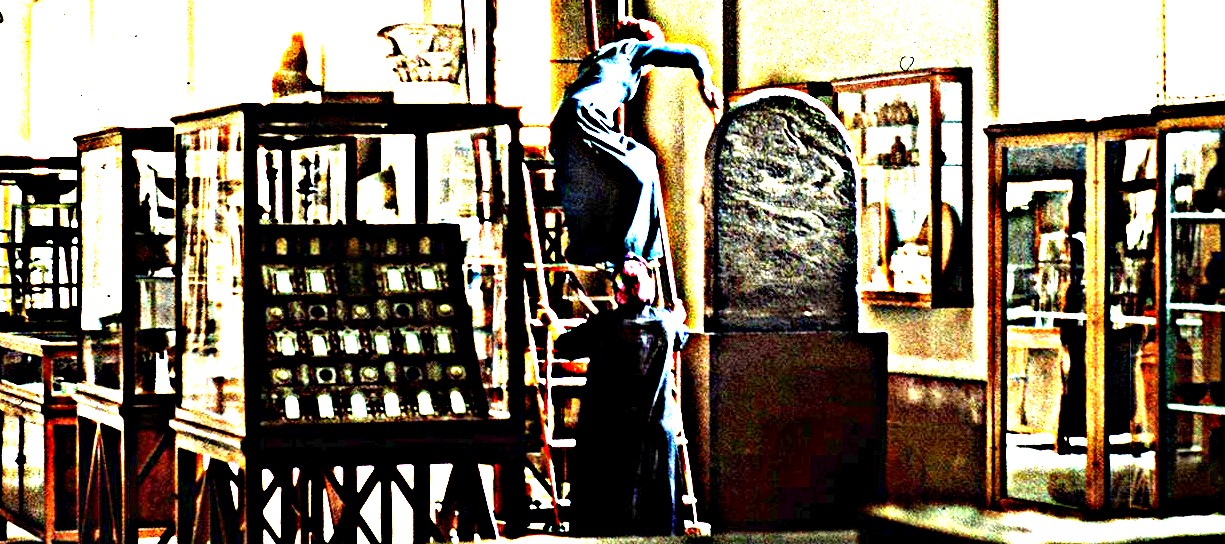Display Cases – Preservation, Sustainability and Design

to
Canadian Conservation Institute (CCI), Ottawa, Ontario, Canada
Registration/Application deadlines:
Two Workshop Options:
-
One-day Workshop: One-day of lectures on key issues.
Attendance accepted upon registration. -
to
Four-day Workshop: One-day of lectures on key issues plus three days of technical lectures, hands-on exercises, demonstrations, site visits and discussions.
Attendance accepted based upon application process.
Workshop Overview
Display cases, if well designed, can be used to control the environmental conditions for valuable and vulnerable collections, and can help reduce the risks of damage (e.g. from light, climate, theft and vandalism) when objects are on display. For designers, they provide the opportunity to highlight particular objects and to tell a story. Due to the varying functions display cases may have to fulfill, many questions still persist about museum case design for designers, conservators and museum professionals alike, such as:
- Should I retrofit existing display cases and, if so, how?
- Are there sustainable approaches to display case design?
- Why can I not use certain materials? Are there design solutions to these problems?
- How tight is tight enough when it comes to air leakage? How do I measure it?
- When do I need extra materials in the case, like humidity buffers and scavengers? How much? Does it matter where I put them?
- What are the advantages of creating a micro-environment within the case, rather than controlling humidity and pollutants at the room level?
- Do new lighting technologies change the old rules about case lighting?
- How do I communicate my needs to contractors and designers?
CCI Advanced Professional Development Workshop: Display Cases – Preservation, Sustainability and Design will provide mid-career heritage professionals with practical answers to these questions and opportunities for discussion. Participants will learn how to make informed decisions when designing display cases as well as how to assess risks to their collections from existing cases. Internationally recognized scientific researchers from CCI will be joined by speakers with significant practical experience, including Alessandro Goppion, Goppion Laboratorio Museotecnico, Italy, and David Thickett, English Heritage.
Instructors
CCI
Jean Tétreault, Senior Conservation Scientist
Stefan Michalski, Senior Conservation Scientist
Paul Marcon, Senior Conservation Scientist (Engineer)
Eric Hagan, Conservation Scientist
Irene Karsten, Preservation Development Advisor
Simon Lambert, Preservation Development Advisor
Goppion Laboratorio Museotecnico, Italy
Alessandro Goppion
English Heritage, UK
David Thickett, Senior Conservation Scientist
Canadian Museum of Civilization
Chantal Baril, Exhibition Designer
City of Ottawa
Nancy McCarthy
How to Register for the One-day Workshop,
Number of Participants
A maximum of 40 participants will be accepted.
Cost
(includes coffee)
-
Regular fee (Registration is on a first-come, first-served basis):
CAN$300 (includes HST) for Canadian participants
CAN$375 for all others
How to Register
To register to attend the one-day workshop, complete the Application Form. Registration is on a first-come, first-served basis.
Payment
Payment for the one-day workshop is upon registration. It must be provided in Canadian funds by credit card (American Express, MasterCard or VISA).
How to Apply for the Four-day Workshop, -
Number of Participants
A maximum of 22 participants will be accepted.
Please note: This workshop is open to anyone responsible for making decisions about display case design, construction or retrofitting in museums, galleries and archives. This includes conservators, exhibition designers, case designers and manufacturers, museum technicians and collection managers.
Cost
(includes coffee on and lunches on -, as well as a workshop manual)
-
Regular fee (apply by ):
CAN$800 (includes HST) for Canadian participants
CAN$1000 for all others
How to Apply
To apply to attend the four-day workshop, complete the Application Form and the Workshop Applicant Questionnaire (questionnaire will be sent to you upon receipt of your application form).
Applications must be submitted by .
Participants will be selected after and selection will be based on the following criteria:
- likelihood that participants can use the course knowledge to influence good case design for Canadian collections
- ability to share and transfer the knowledge gained during the course to a wider audience
- professional experience and training
- number of registrations from a single organization
- citizenship (preference will be given to Canadians)
If the maximum number of registrants is met, a waiting list will be established.
Payment
Payment for the four-day workshop will be expected upon confirmation of acceptance into the course. It must be provided in Canadian funds by credit card (American Express, MasterCard or VISA).
Canadian federal government employees must provide IS Reference Codes or a commitment number, department code and cost centre.
Refunds
Requests to withdraw must be submitted in writing to CCI. Refunds will be issued according to the following schedule:
- a full refund less a $25 administrative fee for requests received at least 21 days prior to the start of the workshop
- a full refund less a $50 administrative fee for requests received between 20 and 7 days prior to the start of the workshop
- no refund for requests received less than 7 days prior to the start of the workshop
Exceptions to this refund policy may be made in the event of insurmountable difficulties in attending the workshop.
Cancellation
CCI reserves the right to cancel this workshop if the minimum enrolment requirement is not met 30 days prior to the event. In such cases, CCI will refund the full registration fee, but will not be responsible for any transportation, housing, loss of income, or other costs that may have been incurred by the participants.
Additional Information
Please contact CCI if you require additional information.
Page details
- Date modified: